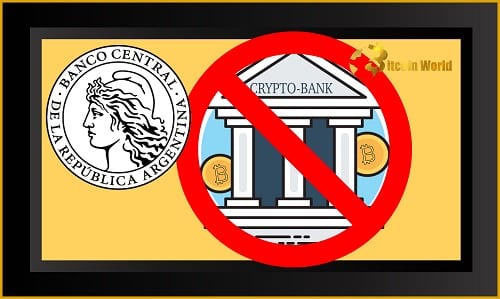The Argentina’s central bank (BCRA) has placed a stop to financial institutions allowing crypto trading, just days after two of the country’s largest banks said they were considering it.
The BCRA announced the action on May 5 in order to reduce the risks that crypto poses to users and “the financial system as a whole,” citing crypto’s high volatility, usage in money laundering, and lack of regulatory safeguards.
The news comes after two of the country’s main banks, Banco Galicia and Brubank, said on Monday that its clients would be able to buy Bitcoin (BTC), Ethereum (ETH), USD Coin (USDC), and Ripple (XRP) (XRP).
A poll performed by Banco Galicia determined that 60 percent of respondents requested easier access to digital currencies, prompting the decision to introduce crypto trading.
The central bank has long been skeptical about cryptocurrency, issuing a public warning about the risks in May of last year, citing concerns about volatility and money laundering despite the fact that the bank claimed there were no indicators of “substantial levels of adoption and use.”
According to research from Statista, 21% of respondents in Argentina owned or used cryptocurrency in 2021, making it the world’s sixth-highest rate of adoption and the highest in the Americas.
According to INDEC, Argentina’s statistics department, inflation increased by 6.7 percent in March, the highest rate in 20 years, at 55.1 percent year over year. To combat rising inflation, some Argentinians have turned to cryptocurrency. To combat inflation, one rural village started mining bitcoin in April.
The shift in emphasis since May could be related to the International Monetary Fund’s (IMF) $44 billion extended loan plan, which included a condition requiring Argentina to “discourage the usage of cryptocurrencies.”
The central bank’s announcement contradicts plans of the mayor of Argentina’s metropolis, Buenos Aires. Mayor Horacio Rodrguez Larreta revealed plans to digitize the city in late April, with the goal of allowing inhabitants to pay their taxes in cryptocurrency, among other things.
Related Posts – AMC Theatres Explores Accepting Dogecoin, CEO Sees Awing DOGE Poll Results
- About author
- Disclaimer
Crypto products and NFTs are unregulated and can be highly risky. There may be no regulatory recourse for any loss from such transactions. Crypto is not a legal tender and is subject to market risks. Readers are advised to seek expert advice and read offer document(s) along with related important literature on the subject carefully before making any kind of investment whatsoever. Crypto market predictions are speculative and any investment made shall be at the sole cost and risk of the readers.















